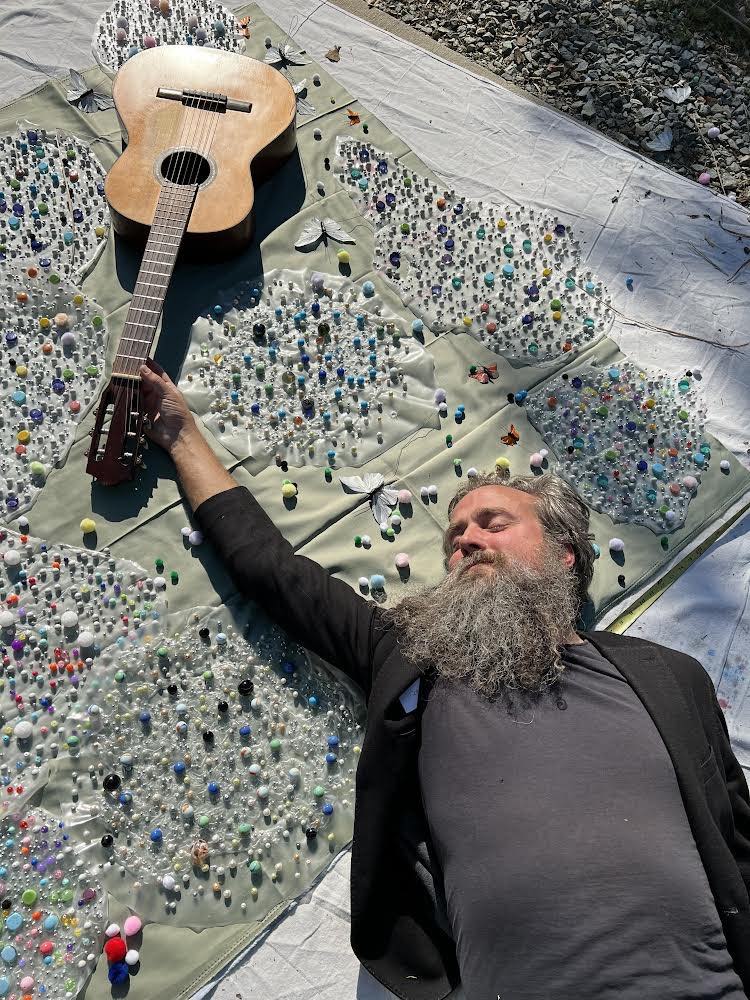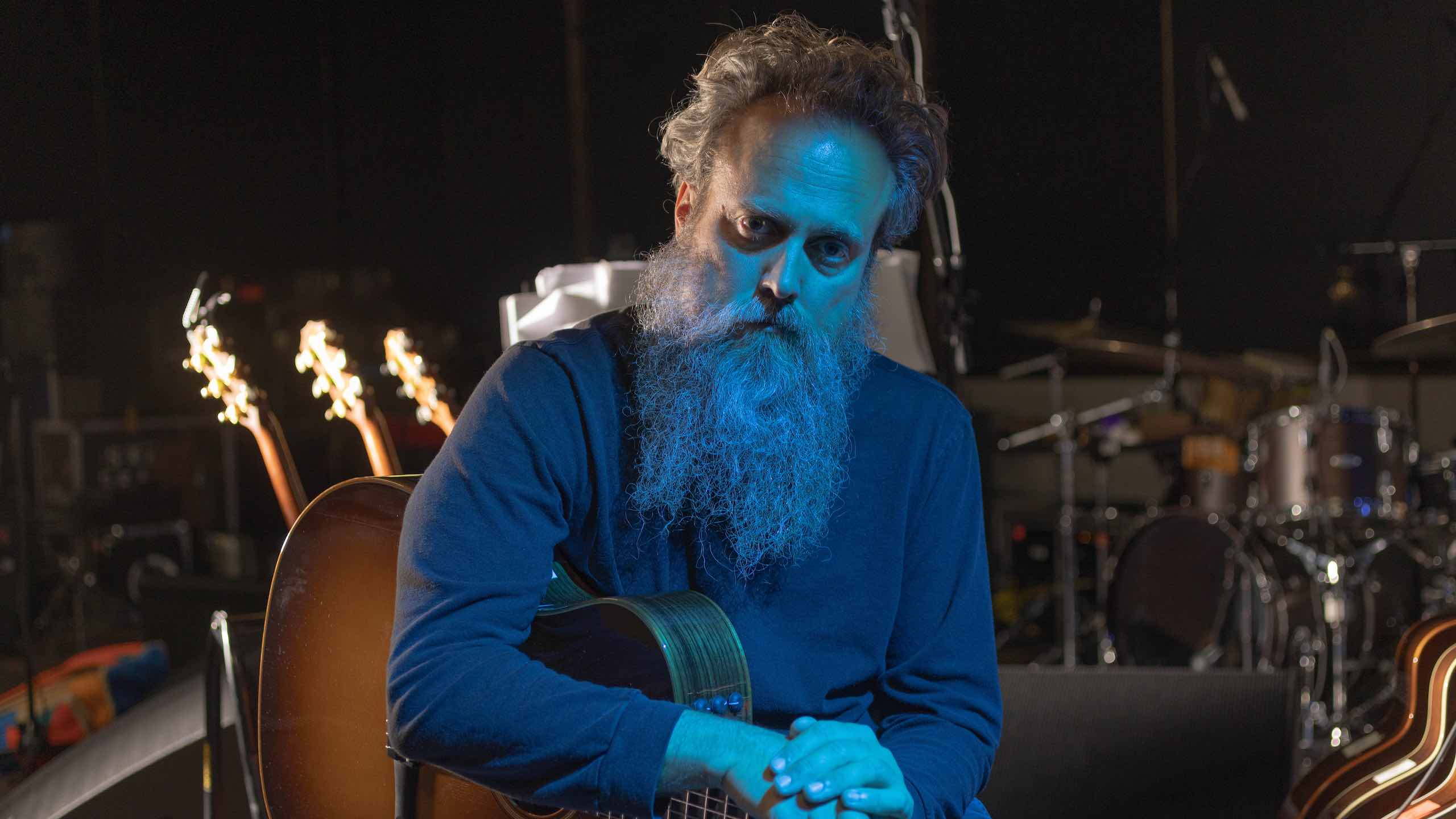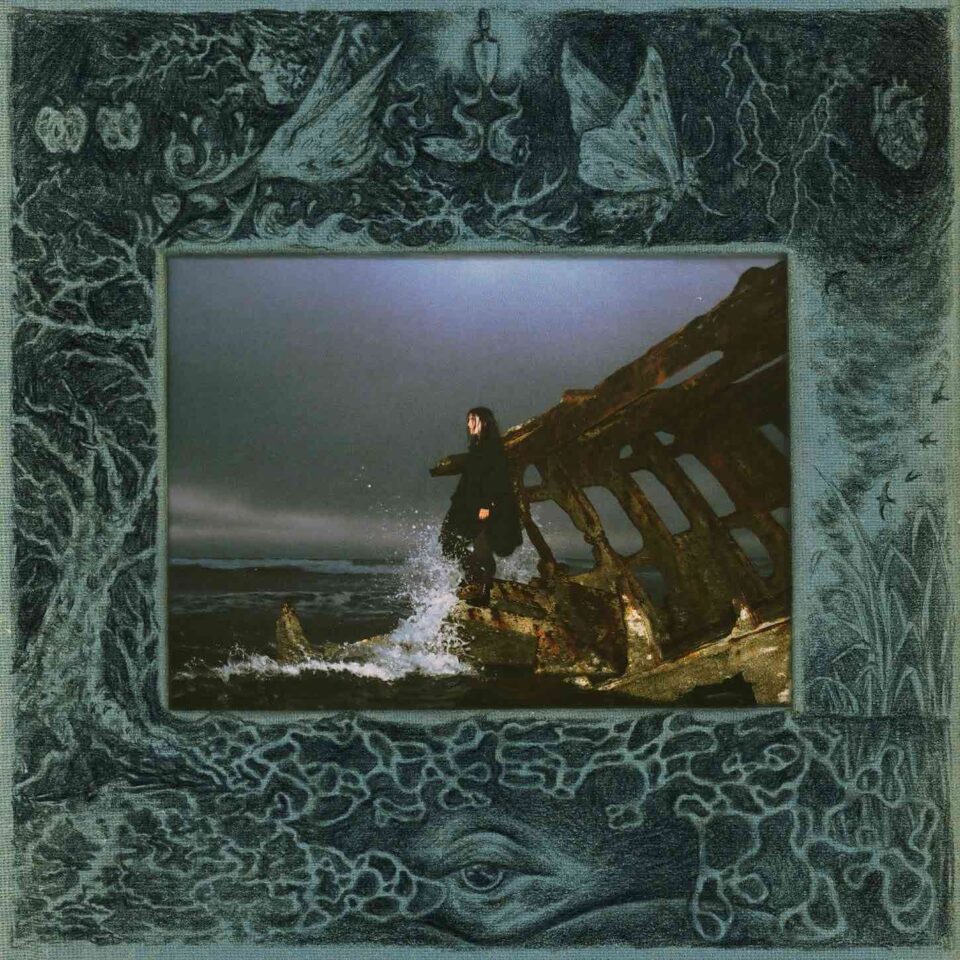Sam Beam has cultivated a stalwart fanbase since the release of his 2002 “whisper folk” debut as Iron & Wine, The Creek Drank the Cradle. His rich blend of folk, jazz, Americana, and bluesy orchestral rock continues the storied tradition of some of the most eclectic songwriters from the 1970s. The whimsy of live-band improvisation has seeped into Iron & Wine’s albums over the past two decades, but that era and its honeyed balm of studio productions meshing with folk sensibilities is something Beam has been particularly fond of since the beginning of his career.
I meet Beam near the famed Los Angeles intersection of Hollywood and Vine, at the plush Thompson Hollywood hotel lobby. He quickly recommends an interview spot at the empty bar, since he knows my phone recorder may not pick up his voice across the room (“I’ve had some experience with this over the years,” Beam jokes). He’s in good spirits today during rehearsals, and he mentions that he wants to see the new Dune sequel—unsurprising, given his earlier career as a professor of film and cinematography at the University of Miami and Miami International University of Art & Design. Beam has a big family (five daughters) that keeps him busy at home in Durham, North Carolina, but he often goes swimming to clear his mind and stay active.
His family worked with Beam on the cover of his seventh album Light Verse, his first full-length solo release since 2017’s Beast Epic. “Everybody pitched in! We did this big sun print,” he explains. “It’s called a cyanotype. It's like an early form of photography where it’s just a silhouette, basically, but you get this light-sensitive paper. The cover is on five-by-seven sheets of sensitized material, and the stars are all marbles and garbage. We made this giant art print as a connection to the title of the album.”
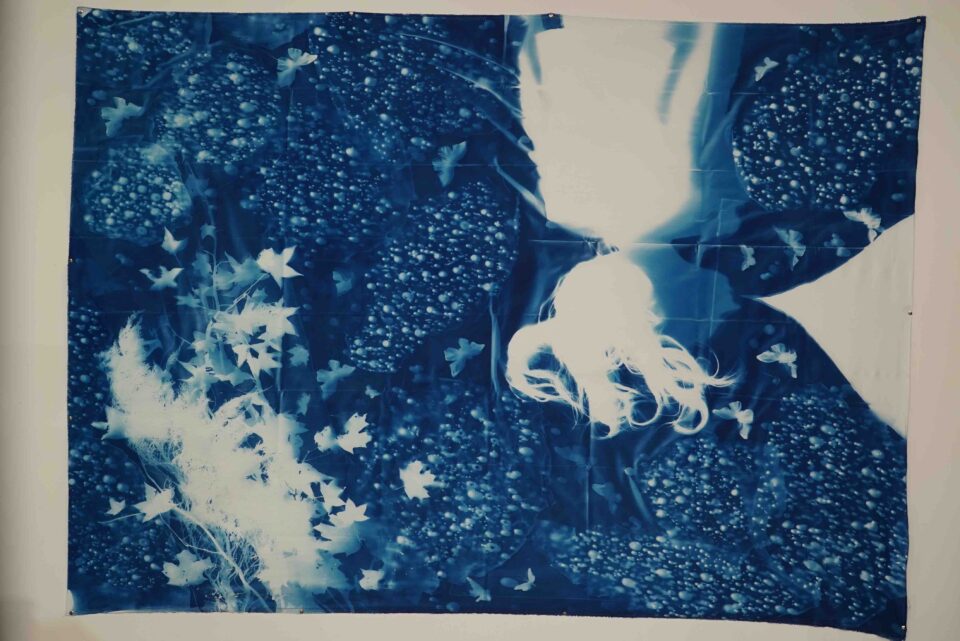
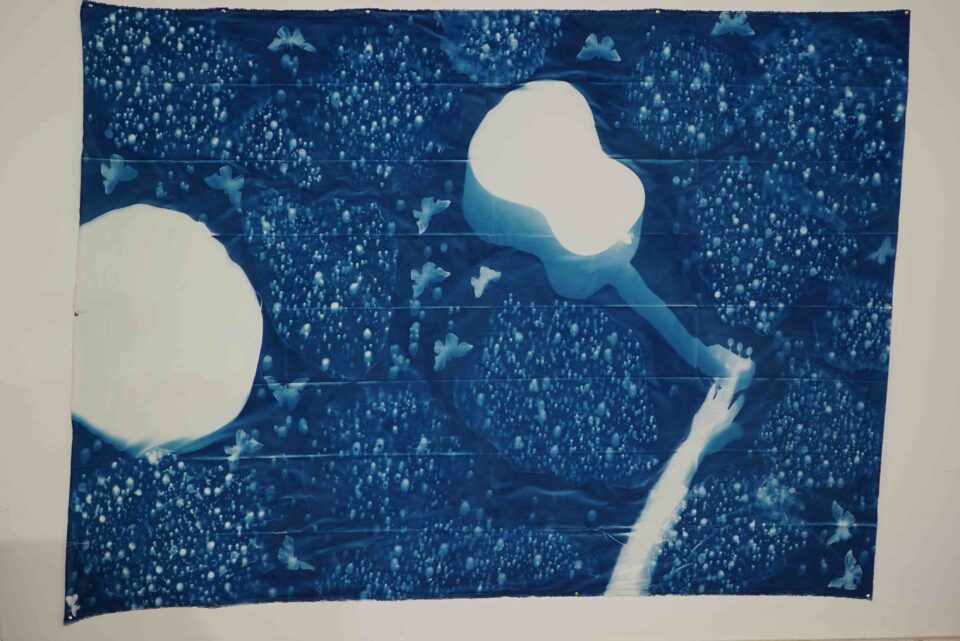
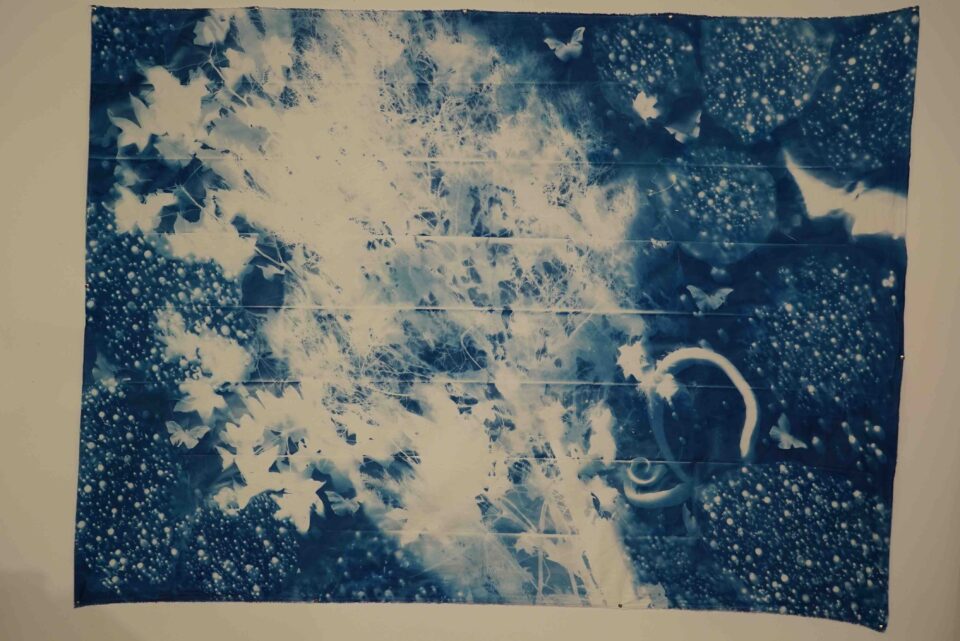
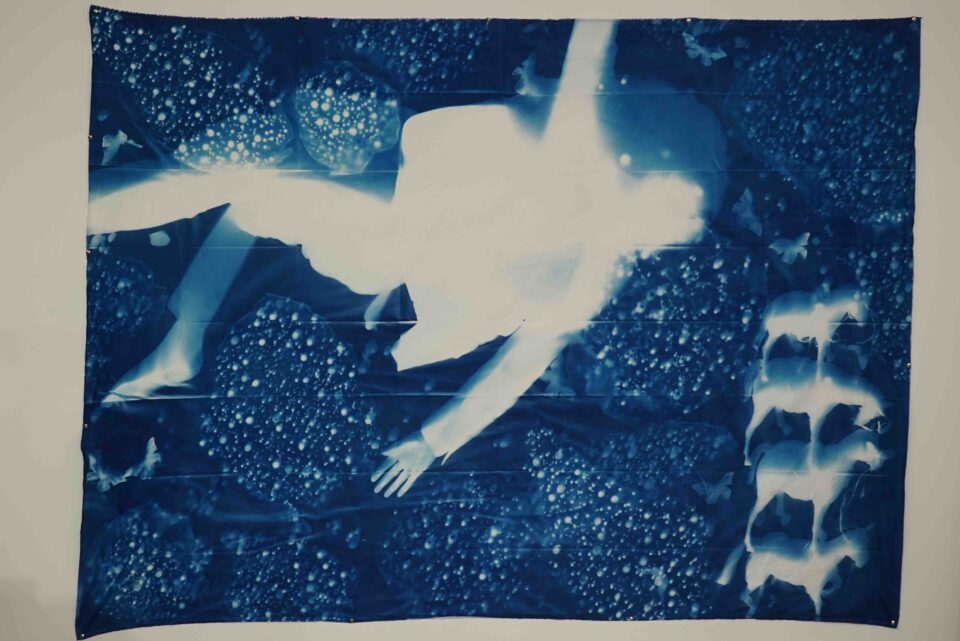
The conversation inevitably turns to the seven-year wait for new songs, the main reason being a tiresome bout of writer’s block after the pandemic that was only shaken off by the continuing bonds of collaboration Beam reignited with Light Verse. He thinks this is the way forward for most artists. “My favorite bands were always these groups where the band was its members. And I think what’s cool about being able to go through your career with a family of people, for better or for worse, is that you experience this thing together and have common experiences.”
The Light Verse band largely comes from LA and includes Tyler Chester on keys and David Garza manning guitar, slide, and other instruments. The drums are covered by Griffin Goldsmith, Elizabeth Goodfellow, and Kyle Crane, while Paul Jacob Cartwright plays violin and mandolin and wrote wonderful string arrangements for the 24-piece orchestra on four of Light Verse’s 10 songs. When asked via email about Beam as a collaborator, the group often mentions his love of film, poetry, wine, and his prowess for arm wrestling. Goodfellow, who also worked with Beam on the Beast Epic tours, enjoyed “making a racket” with the Iron & Wine team.
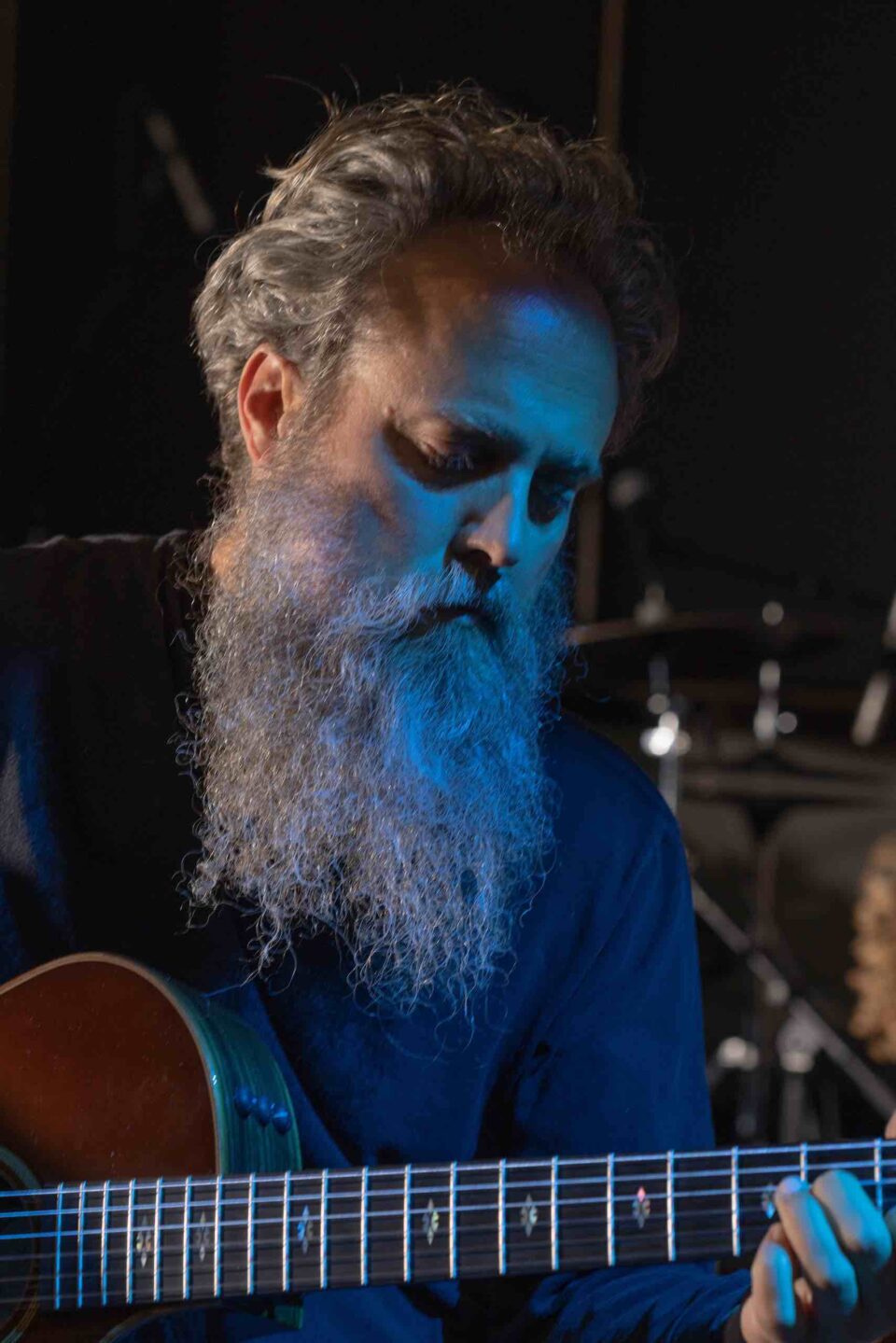
“What’s cool about being able to go through your career with a family of people, for better or for worse, is that you experience this thing together.”
The sessions were recorded live with few overdubs, and generally had the group in good spirits. “Honestly one of my favorite things is when I can make [Sam] laugh with something I play,” Goodfellow writes me. “There are a lot of times in rehearsal or soundcheck when we’re working on reimagining something from the back catalog—changing up the groove—and that exploration is often challenging but really fun because I’m able to take chances. Sometimes the things I try don’t work, but the process can be so much fun because creativity is the priority. I appreciate that searching for a new musical idea can be so much fun in this project.”
Soul Coughing and Fiona Apple bassist Sebastian Steinberg had similar thoughts about the Light Verse recording sessions. He calls it a “cinematic album” and appreciates that Beam doesn’t want to just regurgitate the demos he introduced to the group at the start of the recordings. “So many people write songs like they’re building a car,” Steinburg notes via email. “There may be little variations, but basically wheels, a motor, chairs, doors, windows, et cetera. Sam’s songs, on the other hand, are more like trees. They have a structure that has its irrefutable logic, and they adapt to the world around them. A Ford is a Ford is a Ford, but the same species of tree can each be unique, and have its characteristics depending on where it’s growing and how. Sam’s songs sound one way in Brooklyn and a totally different way in Paris.”
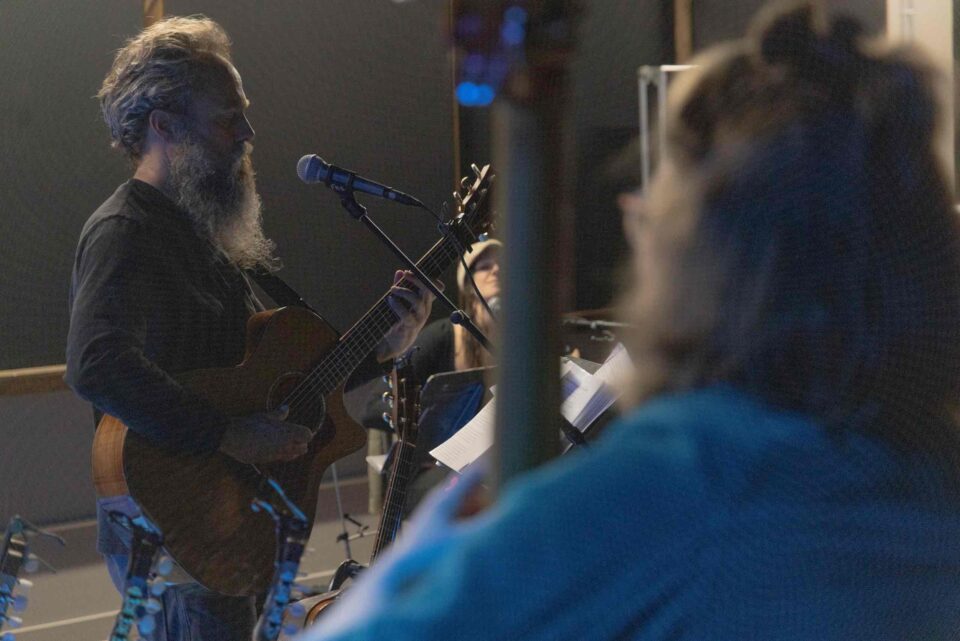
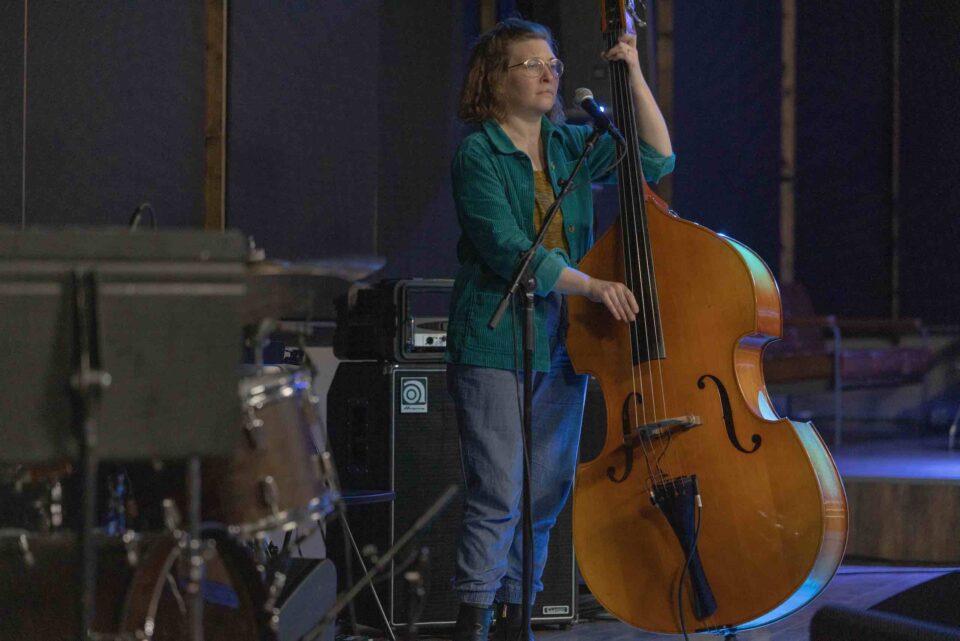
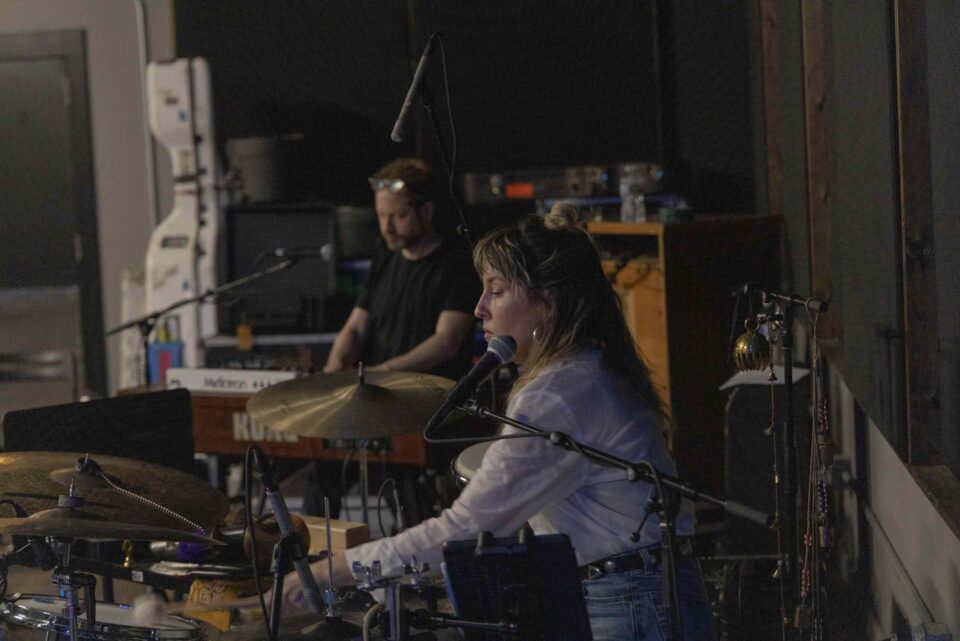
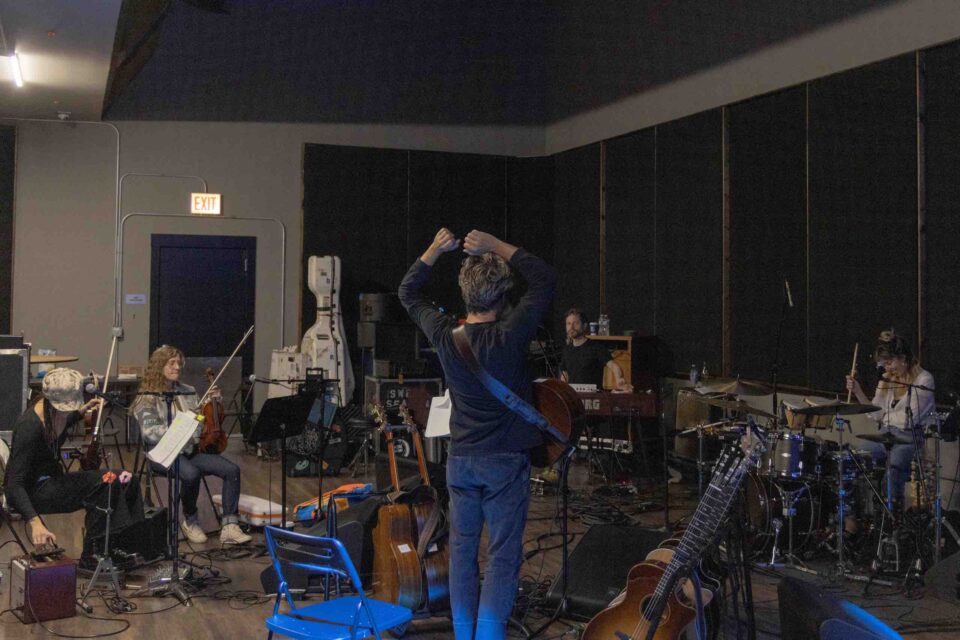
Self-produced by Beam and mixed and engineered by Dave Way (Fiona Apple, Sheryl Crow, Neil Young) at his studio Waystation in Laurel Canyon, Light Verse is a featherweight folk album with a wry wit that’s similar in styling to one of Beam’s ’70s favorites, such as Townes Van Zandt or Mickey Newbury. The highlight track is Beam’s duet with Fiona Apple “All in Good Time,” which examines middle-aged romance and its unexpected emotions. It’s the musical equivalent of a surprise burbling of laughter when sad news comes to your door.
“All in Good Time” is also one of Light Verse’s four tracks to feature a 26-piece orchestra from string arranger and studio musician Paul Jacob Cartwright. Cartwright was first contacted by Beam via text message, and he was well aware of Beam’s back catalog dating back to his 2002 debut. He remembers conversations he had with Beam about the final track on the album and pushing its harmonies to emphasize the darkness in the lyrics. “I was able to pull from our shared love of things like the ecstatic, psychedelic tropicalia of Brazil in the ’60s and ’70s,” notes Cartwright, “and the lush orchestral elements in the music of Scott Walker and Nick Drake, and created what I think is one of my favorite string arrangements I’ve ever written.”
“The process can be so much fun because creativity is the priority. I appreciate that searching for a new musical idea can be so much fun in this project.” — drummer Elizabeth Goodfellow
Light Verse can be quite cinematic at times thanks to Cartwright’s contributions, but the twilight folk music heard on 2004’s Our Endless Numbered Days returns as well on the song about lost love, “Taken by Surprise.” It’s an instant Iron & Wine classic and one that was “closely tied to the demo” for Beam. It’s one of several songs that touches on the unforgiving nature of a full life well lived.
As we discuss the hard times that come with the middle part of one’s life, I mention to Beam the recent passing of my mother and how it hit each member of our family in different ways. Some naturally bawled their eyes out, some met the moment together, and others responded in unexpected ways—even laughing at inappropriate times, which reminded us of themes within Light Verse. Beam’s madcap and majestic comic metaphor of a magical lost and found featured on the orchestral folk song “Tears That Don’t Matter” highlights such a world where misery, love, and zaniness all swirl together.
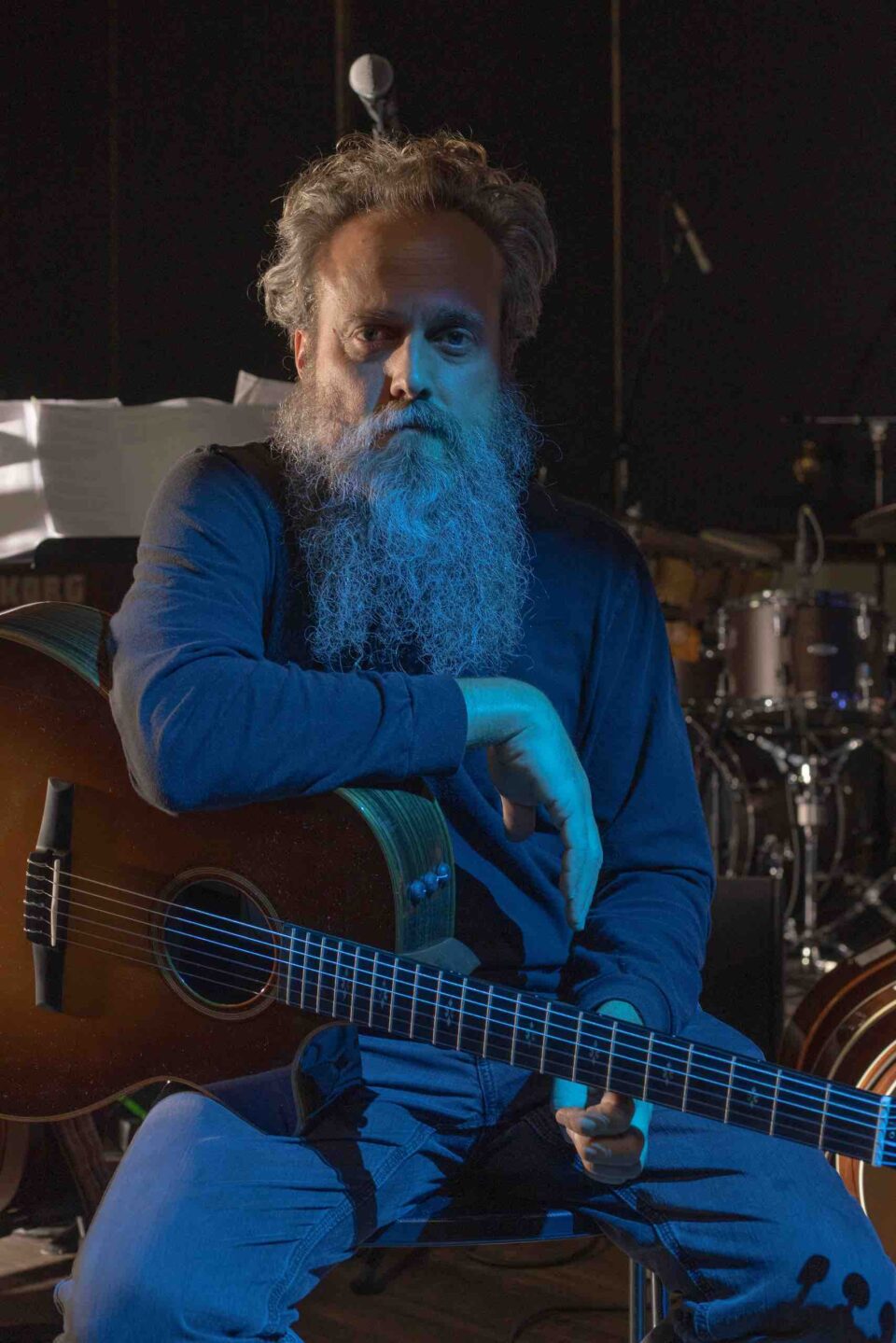
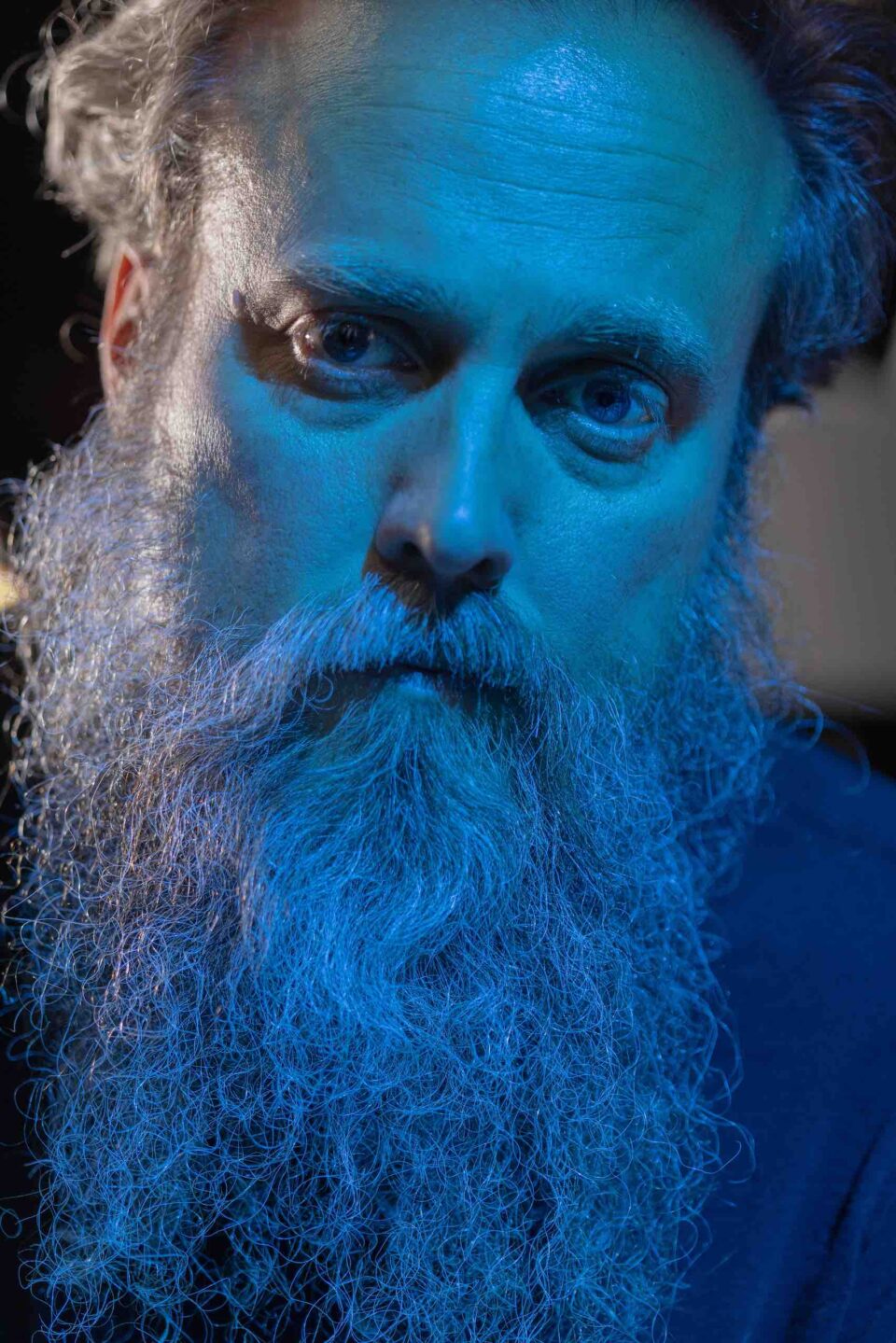
“[Life] is an array of emotions, and sometimes you just have to let loose with it,” Beam says. “I feel like this album has that connective tissue. It’s like some of those kinds of moments in your life you feel so intensely that you’re almost desperate for the rest of the world to seep in like that.”
It seems that Beam’s writing on this particular record wanted to get out of the long shadow of old anger or resentments of the past and approach his songwriting more like conversations with a longtime lover or friend. This is apparent in the ramshackle blues-folk lyrics heard on “Bag of Cats.” He’s laid back and streamlined as he sings over plunking instrumentation: “Let’s laugh at ourselves / When we listen again / It’ll blend with the sound of the rain / Let’s paint with our blood / Draw some lines in the sand / If the wind isn’t blowing our way.”
Light Verse is a fresh and full-band effort for Iron & Wine, and Beam hopes the fruits of his labors are received well. “Honestly, that’s what the title is about as well,” he notes before we part. “The whole thing just felt lighter. I just sort of joke around in life. But when it’s time to sit down and write a song, it’s time to say what you mean for some reason. Now, over the years, I do like to acknowledge that it’s heavy stuff, and it’s nice to have some balance, too.” FL
